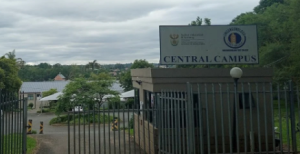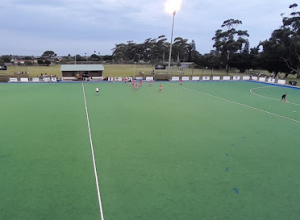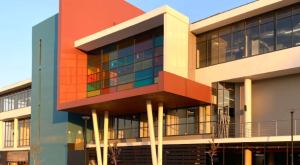The Essentials
Type of Institution: University
Fees per year: R25 000.00 – R70 000.00
Address: Private Bag X17, Bellville 7535, South Africa
Phone Number: +27 21 959 2911
Chancellor: Thabo Makgoba
Number of students: 30 000+
Email: info@uwc.ac.za
Website: https://www.uwc.ac.za/
Table Of Contents
- Overview
- Contact Details
- Address
- Location
- School Fees
- Courses & Programs
- Vacancies and Entry Requirements
- Logo
- Notable Alumni
- Pros and Cons
- Author’s Review
Overview
The University of the Western Cape (UWC) is a public university located in Bellville, a suburb of Cape Town, South Africa. Founded in 1959, it was originally established as a university for people classified as “Coloured” under apartheid.
Over the years, it has evolved into a non-racial institution known for its contributions to South Africa’s struggle for social justice, equity, and democracy. Today, UWC is recognized for its commitment to excellence in teaching, research, and community engagement.
General
Location: Bellville, Cape Town, Western Cape, South Africa
Founded: 1959
Language of Instruction: English
Student Population: Approximately 23,000+ students, including both undergraduate and postgraduate students.
Campus: The main campus is located in Bellville, with modern facilities, a library, student residences, and recreational spaces.
Reputation and Key Focus Areas
Social Justice and Democracy: UWC is well-known for its historical role in the fight against apartheid and its ongoing focus on issues of human rights, equity, and social justice.
Diverse and Inclusive Environment: UWC promotes diversity, inclusivity, and access to education for students from disadvantaged backgrounds. It is an advocate of transformation within the South African higher education system.
Research and Innovation
UWC is a leader in community-based research, with a focus on real-world issues such as public health, water studies, biodiversity, and renewable energy. The university hosts several research institutes and centers such as the South African National Bioinformatics Institute (SANBI), which is involved in cutting-edge research in biotechnology and genetics.
Student Life and Campus Facilities
Campus Life: UWC offers a vibrant campus life with a wide range of student organizations, societies, and sports clubs. These include cultural, academic, political, and social groups.
Accommodation: The university provides several on-campus residences for students, fostering a strong sense of community.
Extracurricular Activities: UWC encourages students to participate in sports, community outreach, and arts programs. The university is known for its strong tradition in sports, especially rugby, soccer, and cricket.
Library and Facilities: UWC has a modern library and well-equipped computer labs. The campus also features recreational spaces, health services, and student support services.
University of the Western Cape Contact Details
You can contact University of the Western Cape via their landline, email or you can visit their website for further contact details.
Phone Number: +27 21 959 2911
Email: info@uwc.ac.za
Website: https://www.uwc.ac.za/
University of the Western Cape Address
Private Bag X17, Bellville 7535, South Africa
University of the Western Cape Location
University of the Western Cape’s main campus is situated in the city of Cape Town under the Western Cape province of South Africa, in the town of Bellvile.
University of the Western Cape Fees
University of the Western Cape’s fees is currently standing at R25 000.00 – R70 000.00 per year depending on the program you are studying and the level of degree you are studying. Please contact the institution or visit them to get the latest fees structure as it can change at any time.
University of the Western Cape Courses & Programs
The University of the Western Cape (UWC) offers a diverse range of undergraduate, postgraduate, and doctoral programs across its seven faculties.
Faculty of Arts and Humanities
Bachelor of Arts (BA)
Majors: History, Philosophy, Psychology, Sociology, English, Political Studies, Linguistics, Anthropology, Modern Languages (e.g., French, German, Xhosa)
Bachelor of Library and Information Science (BLIS)
Bachelor of Theology (BTh)
Honours, Master’s, and PhD Programs in all major disciplines, including Philosophy, Psychology, Linguistics, Cultural Studies, and more.
Faculty of Community and Health Sciences
Bachelor of Nursing (BN)
Bachelor of Occupational Therapy (BOccTher)
Bachelor of Physiotherapy (BPhysio)
Bachelor of Social Work (BSW)
Bachelor of Science in Dietetics (BSc Dietetics)
Bachelor of Sport Recreation and Exercise Science (BSc SportSci)
Bachelor of Child and Youth Development (BCYDev)
Postgraduate Diplomas in Public Health, Social Work, and Community Health
Honours, Master’s, and PhD Programs in Public Health, Nursing, Physiotherapy, Dietetics, and Social Work
Faculty of Dentistry
Bachelor of Dental Surgery (BChD)
Bachelor of Oral Health (BOH)
Postgraduate Diplomas in Orthodontics, Oral Surgery, Maxillofacial Radiology
Master’s and PhD Programs in Dentistry, with specializations in areas such as Orthodontics, Prosthodontics, Periodontics, and Paediatric Dentistry
Faculty of Economic and Management Sciences
Bachelor of Commerce (BCom)
Majors: Accounting, Finance, Economics, Marketing, Human Resources, Information Systems
Bachelor of Commerce in Financial Accounting (BCom FA)
Bachelor of Administration (BAdmin)
Bachelor of Economic Science (BEconSci)
Postgraduate Diplomas in Management, Business Administration, and Economics
Master of Commerce (MCom)
Master of Business Administration (MBA)
Honours, Master’s, and PhD Programs in Economics, Management, Finance, Public Administration
Faculty of Education
Bachelor of Education (BEd)
Specializations: Foundation Phase, Intermediate Phase, Senior Phase, Further Education and Training (FET)
Postgraduate Certificate in Education (PGCE)
Advanced Certificate in Education (ACE)
Honours, Master’s, and PhD Programs in Education, Curriculum Studies, Educational Psychology, Language Education, Science Education
Faculty of Law
Bachelor of Laws (LLB)
Postgraduate Diplomas in Labour Law, Tax Law, International Trade Law
Master of Laws (LLM) with specializations in:
Constitutional Law
Human Rights
Labour Law
Environmental Law
Criminal Justice
Doctor of Laws (LLD)
Faculty of Natural Sciences
Bachelor of Science (BSc)
Majors: Biotechnology, Chemistry, Physics, Mathematics, Computer Science, Environmental Science, Botany, Zoology
Bachelor of Science in Biotechnology (BSc Biotech)
Bachelor of Science in Computer Science (BSc CS)
Postgraduate Diplomas in Biotechnology, Physics, Mathematics
Honours, Master’s, and PhD Programs in all major science disciplines including Astronomy, Genomics, Environmental Studies, Applied Mathematics, Data Science
Special Programs and Institutes
South African National Bioinformatics Institute (SANBI): Specializes in bioinformatics and genomics research.
Institute for Microbial Biotechnology and Metagenomics (IMBM): Offers programs in microbiology, biotechnology, and bioinformatics.
University of the Western Cape Vacancies and Entry Requirements
The University of the Western Cape (UWC) offers a wide range of undergraduate and postgraduate programs. Admission to these programs is based on meeting certain academic criteria, including a minimum Admission Point Score (APS) for undergraduate programs and relevant qualifications for postgraduate studies.
Vacancies
Undergraduate Programs:
UWC offers undergraduate degrees across several faculties. Vacancies for programs are limited, especially in competitive fields, and applicants are encouraged to apply early. Vacancies in popular programs like Dentistry, Nursing, Physiotherapy, and Law are competitive, and spaces may fill up early in the application cycle.
Programs in Commerce, Science, and Humanities generally have more availability, but admission is still competitive based on the number of applicants.
Postgraduate Programs:
UWC offers a variety of honours, master’s, and doctoral programs across all faculties. Admission to postgraduate programs is based on academic merit and availability of supervision, especially for research-based programs. Postgraduate programs may have limited spaces depending on the availability of academic supervisors for research degrees.
Professional postgraduate programs like the MBA and LLM tend to have more structured intakes with clear vacancies each year.
Entry Requirements
Undergraduate Entry Requirements:
To be eligible for undergraduate programs, students must meet the following general requirements:
National Senior Certificate (NSC) or equivalent: Applicants must have a NSC with a minimum number of points in designated subjects. International students need an equivalent school-leaving certificate.
Minimum APS (Admission Point Score): UWC uses an APS system based on the final Grade 12 results. Each program has a specific APS requirement, which varies according to the field of study.
Minimum APS Score Requirements for Major Programs:
Bachelor of Commerce (BCom): APS of 30-35, with strong marks in Mathematics.
Bachelor of Arts (BA): APS of 27-32, depending on the chosen major.
Bachelor of Laws (LLB): APS of 37-40, with English at a high level.
Bachelor of Science (BSc): APS of 35-40, with Mathematics and Physical Sciences required.
Bachelor of Education (BEd): APS of 28-32, with specific subject requirements for different teaching phases (e.g., Mathematics, Languages).
Dentistry (BChD): APS of 45-50, with Life Sciences and Physical Sciences required, along with very high scores in these subjects (minimum 70%+).
Subject Requirements:
Mathematics and Physical Sciences are required for most Science, Commerce, and Health Sciences programs.
English must be passed at a higher level for most programs, with a minimum of 50-60%.
Postgraduate Entry Requirements:
Admission to postgraduate programs is based on the following general criteria:
Honours Programs:
Applicants must have a relevant bachelor’s degree with a minimum average of 60% in the final year of undergraduate studies.
Master’s Programs:
Applicants must hold an appropriate honours degree or equivalent qualification with an average grade of at least 65-70%.
For research-based master’s degrees, students must submit a research proposal and secure a supervisor within the department.
Doctoral Programs (PhD):
Applicants must have a relevant master’s degree in their field of study.
They must submit a research proposal outlining their intended PhD project and identify a supervisor.
Professional Programs:
For programs like the Master of Business Administration (MBA), students need:
A relevant bachelor’s degree.
3-5 years of work experience in a relevant field.
In some cases, a GMAT score may be required.
International Students:
Equivalency: International students must meet equivalency standards for their high school or undergraduate qualifications.
English Proficiency: Students whose first language is not English may be required to submit an IELTS or TOEFL score to prove proficiency in English.
Application Deadlines and Processes
Undergraduate Programs: Applications typically open in May and close by the end of September. Certain competitive programs may have earlier deadlines.
Postgraduate Programs: Deadlines vary by program, with applications often closing between October and December for the following academic year.
University of the Western Cape Logo
Below is the logo of University of the Western Cape with excellent quality and it is available to download in PNG (transparent file) JPEG and PDF.
University of the Western Cape Logo
University of the Western Cape Notable Alumni
Thembi Kgatlana – South African professional soccer player
Allan Boesak – South African Dutch Reformed Church cleric, politician and anti-apartheid activist.
Samkelisiwe Makhoba – South African actor who has a leading role in two series of MTV Shuga.
Chrystia Freeland (Canada) – Minister of Foreign Affairs
Lindiwe Sisulu (South Africa) – Minister of International Relations and Cooperation
João Gomes Cravinho (Portugal) – Minister of National Defence
HM, The King Willem – Alexander of Holland
Julie Payette (Canada) – Governor General
Ian Khama (Botswana) – ex-President of Botswana
Lene Espersen (Denmark) – ex-Minister of Foreign Affairs, ex-Deputy Prime Minister
Wang Guangya (China) – ex-Ambassador to the United Nations
Jorma Ollila (Finland) – ex-CEO and Chairman, Nokia Corp (1992-2012)
Robert Milton (USA) – President, Board of Directors, United Continental Holdings
Yasmine Hilton (India) – President, Board of Directors, Shell India Markets
Masao Morita (Japan) – Executive Director of Music and Film, Sony Corporation
Peter Sands (United Kingdom) – ex-CEO, Standard Chartered Bank (2002-2015)
Renosi Mokate (South Africa) – ex-Executive Director, World Bank
University of the Western Cape Pros and Cons
Pros
Strong Focus on Social Justice and Equity: UWC has a rich history of being a leader in the struggle for social justice, especially during the apartheid era. The university continues to focus on promoting equity, diversity, and inclusivity in education and society.
Affordable Tuition Fees: UWC offers relatively affordable tuition fees compared to many other South African universities, making it accessible to students from different financial backgrounds. Financial aid and scholarships are available to help students in need.
Research Excellence: UWC is known for its strong research output in fields such as public health, bioinformatics, social sciences, and biotechnology. It hosts world-class research institutes like the South African National Bioinformatics Institute (SANBI) and the Institute for Poverty, Land, and Agrarian Studies (PLAAS).
Diverse Academic Offerings: UWC offers a wide range of undergraduate, postgraduate, and doctoral programs across its seven faculties, including Dentistry, Law, Natural Sciences, Humanities, and Health Sciences. The university provides programs that cater to different career aspirations, including professional, research, and community-focused degrees.
Location: UWC is located in Bellville, Cape Town, which is a vibrant city with many opportunities for academic and social growth. Students can enjoy the cultural diversity and natural beauty of Cape Town, including access to beaches, mountains, and city life.
Commitment to Community Engagement: UWC has a strong focus on community engagement and service-learning, with many programs integrating practical, real-world experience. Students have the opportunity to contribute to community development and gain hands-on experience in their fields of study.
Inclusive and Diverse Student Body: UWC attracts a diverse group of students from across South Africa and internationally, creating a multicultural and inclusive learning environment. This diversity enhances the learning experience and promotes intercultural understanding.
Modern Facilities: The university has modern campus facilities, including an updated library, research labs, student residences, and sports complexes. UWC is continually improving its infrastructure to provide a conducive learning environment.
Cons
Highly Competitive Admission for Certain Programs: Some programs, particularly in Dentistry, Law, and Health Sciences, are highly competitive, and spaces are limited. Students may face tough competition, requiring high academic performance, especially for popular courses.
Limited Availability of On-Campus Housing: Although UWC offers on-campus accommodation, there is limited availability, and students may struggle to secure a place in residence. Off-campus housing options are available but can be expensive, particularly in Cape Town.
Infrastructure Development Challenges: While the university has made strides in improving its facilities, some students may still encounter issues with infrastructure, particularly during times of increased student intake. Overcrowding in certain areas of the campus, like lecture halls or libraries, may be a concern during peak times.
Public Transportation Limitations: Although UWC is located in Bellville, a well-connected part of Cape Town, public transportation can be challenging for students living far from the campus. Many students may need to rely on private transport or shuttle services, which can add to their expenses.
Limited International Exposure in Some Programs: While UWC does have international partnerships, it may not offer as many international exchange opportunities as some other South African universities. Some students seeking extensive global exposure might find more opportunities at larger, research-intensive universities like UCT or Wits.
Perception as a Historically Disadvantaged Institution: Despite its significant progress, UWC is sometimes perceived as a historically disadvantaged university because of its apartheid-era origins. This perception might affect its reputation in comparison to older institutions like UCT or Stellenbosch, although UWC has worked hard to overcome these challenges and establish its own identity.
Limited Funding for Some Research Programs: Although UWC has made significant strides in research, some programs may still face challenges in securing funding and resources compared to larger, wealthier institutions. Students in certain fields may find fewer resources for cutting-edge research or advanced technologies.
Author's Review
The University of the Western Cape (UWC) stands out as a dynamic institution deeply rooted in principles of social justice and equity. Its strong commitment to academic excellence, community engagement, and research innovation makes it a compelling choice for students seeking a comprehensive and impactful education.
UWC’s diverse academic offerings across its seven faculties cater to a wide range of interests, from health sciences and law to humanities and natural sciences.
While UWC is recognized for its affordable tuition and a supportive, inclusive learning environment, it also faces challenges such as competitive admission for certain programs and limitations in on-campus housing.
Despite these challenges, the university’s focus on transformative education and community service provides students with valuable opportunities to make meaningful contributions to society.
For prospective students, UWC represents an institution where academic rigor is balanced with a strong ethical foundation, preparing graduates to excel in their fields while upholding values of justice and equity.
Overall, UWC’s dedication to fostering a diverse and engaged student body, coupled with its significant research achievements, positions it as a noteworthy choice for higher education in South Africa.



